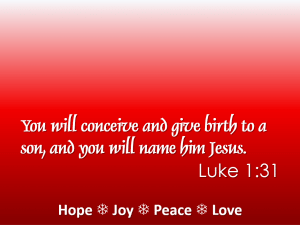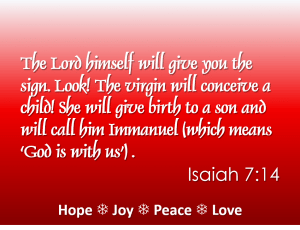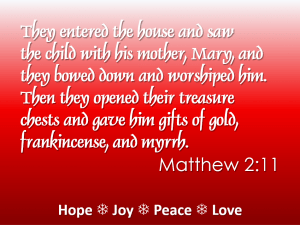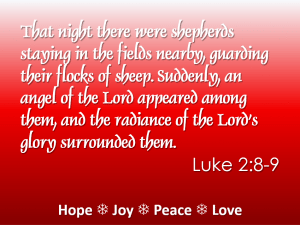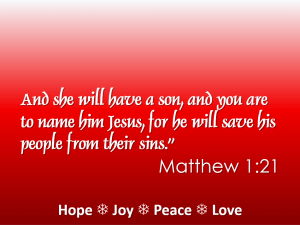Year: 2015
6th day of advent
5th day of Advent
4th day of Advent
3rd day of Advent
2nd day of Advent
1st Sunday of advent
Advent
Advent is the beginning of the Church calendar.
Advent is marked by a joyful spirit of anticipation, preparation, and longing. The word Advent means coming or arrival. The focus of this season is preparing for the celebration of the birth of Jesus, the Christ, the Messiah, in his first Advent, and the anticipation of the return of Christ the King in his second Advent. We mark Advent by the four Sundays before Christmas to remind ourselves that Christmas is not just about buying and exchanging Christmas presents, but about celebrating the moment in time when God came to us as a baby wrapped in swaddling clothes, a moment we call the Incarnation.
CELEBRATION
Advent is far more than simply marking a 2,000-year-old event in history. It is celebrating God’s giving of himself in Jesus whereby all of creation and all people might be reconciled to God, where we can see peace on earth and goodwill to men. We participate in the Advent celebration now, as we wait in anticipation of the fulfillment of all that God has promised. As the church celebrates God’s breaking into history in the Incarnation, we confess own responsibility as a people called to love God with all our hearts and to love our neighbors as yourselves. Advent is how we prepare ourselves for Christmas.
BETWEEN ADVENTS
Advent symbolizes our affirmation that Christ has come, that He is present in the world today, and that He will come again as the conquering Lamb. This acknowledgment provides a basis for Kingdom ethics, for holy living arising from a profound sense that we live “between the times” and are called to be faithful stewards of what he has entrusted to us as God’s people living in the first advent of Jesus while we wait for his second advent. The season of Advent is filled with mixed emotions. We experience joy, knowing Jesus has come; and longing, knowing these are still not right and we need Jesus to come again.
RETELLING THE STORY
The spirit of Advent is expressed well in the parable of the bridesmaids who are anxiously awaiting the coming of the Bridegroom (Matthew 25:1-13). There is profound joy at the Bridegroom’s expected coming. Advent enables us to retell, relive, and re-enter the Jesus Story – from the crowded stable to the empty tomb. We want to be shaped by the Gospel Story. And the Gospel is a story, not a plan or theory or philosophy or ideology. It is a story, the story of Jesus of Nazareth. This is the story told in the Christian calendar beginning with Advent as we wait for Christ.
THE FOUR SUNDAYS IN ADVENT
- November 29 – 1st Sunday of Advent
- December 6 – 2nd Sunday of Advent
- December 13 – 3rd Sunday of Advent
- December 20 – 4th Sunday of Advent
ADVENT CALENDARS FOR THE WHOLE FAMILY
Go by the OCCKids Check-In Desk and pick up a copy of the Advent Calendar. This handy tool will give you a story to read and an activity families can do together. The hope is that by December 25th your family will have read God’s story of compassion and began writing your own story of compassion by doing a few of the suggested activities.
Acts – introduction
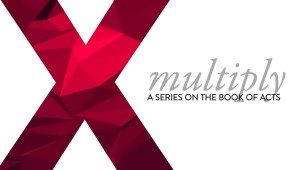 Beginning Sunday 18 October 2015 we are turning our attention as a church family to the book of Acts. As we begin this series, I wanted to address our purpose in studying it, and to pass on to you some tools to help leverage the time we will give to learning and applying the story of the early Church.
Beginning Sunday 18 October 2015 we are turning our attention as a church family to the book of Acts. As we begin this series, I wanted to address our purpose in studying it, and to pass on to you some tools to help leverage the time we will give to learning and applying the story of the early Church.
Why Acts?
The Church exists to continue what Jesus began. We believe the New Testament teaches that we are to continue what Jesus taught and did. We are to be gospel-centered and Jesus-focused. And this mission begins where we exist in everyday life – our homes, our places of work, our schools, our parks, our restaurants, our stores, our sports fields, our neighbourhoods. In other words, we are called to live out the gospel in our city, all over our city. Our name – Orillia Community Church – reflects our desire to be Jesus followers within our everyday life context.
We do that, by being obedient to the call to be making disciples. One aspect of a maturing disciple of Christ is what we call “gospel-centered multiplication.” We define gospel-centered multiplication as “multiplying the kingdom by living with the purpose to make God known and enjoyed. The disciple’s call is multiplication and replication through the gospel—for the glory of our God. Those who have been reconciled to God through the gospel have ample opportunity to enter into the work of gospel-centered multiplication. From missional living through interacting with neighbors and co-workers to missional outreach or short- or long-term mission trips, our lives become infused with purpose and meaning as the gospel goes forth.
Making the Most of the Series
We will be going through the book of Acts chapter by chapter. We will not be going verse by verse, so it is important to be familiar with the flow of the narrative of what is happening. The following is a breakdown of how you can read during the week to prepare for the weekend message:
- The main theme of the book of Acts is found in Acts 1:8,
which says, “But you will receive power when the Holy Spirit has come upon you, and you will be my witnesses in Jerusalem and in all Judea and Samaria, and to the end of the earth.” Read the book of Acts in light of this theme. - Read the book of Acts as fulfilling the promises of the Old Testament.
The book of Isaiah promised that one day Gentiles would flock to Zion and that the good news of the one true God (Yahweh) would go forth to all nations. Jeremiah promised that one day God would write His law on our hearts and give us His Spirit. Joel promised the giving of God’s Spirit and the gift of prophesy. The book of Acts was written to point to the fulfillment of what had been prophesied in the Old Testament. - Read the book of Acts as a transitional book.
The book of Acts spans the gap between the resurrection of Jesus and the established churches addressed in Paul’s letters. Acts shows the Church going out in the Holy Spirit’s power to expand throughout the known world. Because it is a transitional book, it contains a few things that happen outside of the “norm.” For example, God waits to give His Spirit to certain people [Acts 8:14-25] until the Apostles lay their hands on them. This is so the Apostles can authenticate the gospel message, and so others can see that the Spirit is going out to the Gentiles. This does not mean that everyone has to have hands laid on them today to receive the Spirit. Similarly, speaking in tongues is common in Acts, serving as a visible fulfillment of Old Testament promises about the Spirit, and as evidence that God has given His Spirit to people and that the gospel message is true. This does not mean that all believers must speak in tongues [1 Corinthians 12:30.] - Pay attention to how the gospel is preached in Acts.
The book of Acts offers the gospel as more than just a message of personal salvation. The Apostles emphasize Jesus’ resurrection, the need for repentance, the liberating gift of the Holy Spirit, the inclusion of Gentiles into God’s promises and the inception of the Kingdom of God, as Jesus brings not only personal restoration, but cosmic restoration through His rule and reign.
I am excited to dive into this book with you! It is a soul stirring, convicting and re-calibrating study. I’m excited to celebrate the story of the Holy Spirit empowering the Church from Orillia to the ends of the earth.
Reading the Gospels
From January through April, join us in reading through the Gospels:
Matthew – Mark – Luke – John. 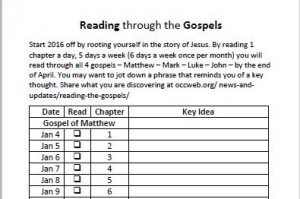
You can download the readings here: gospel readings page;
get it from our OCCWEB facebook page;
or pick up a hard copy at the welcome centre at OCC.

